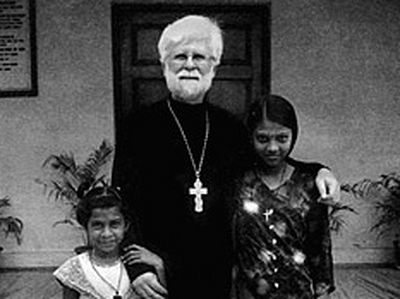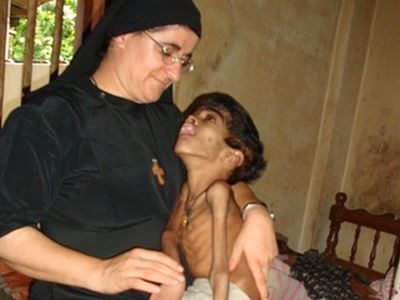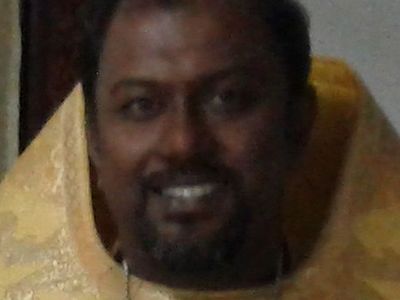Bhubaneswar, India, July 28, 2015
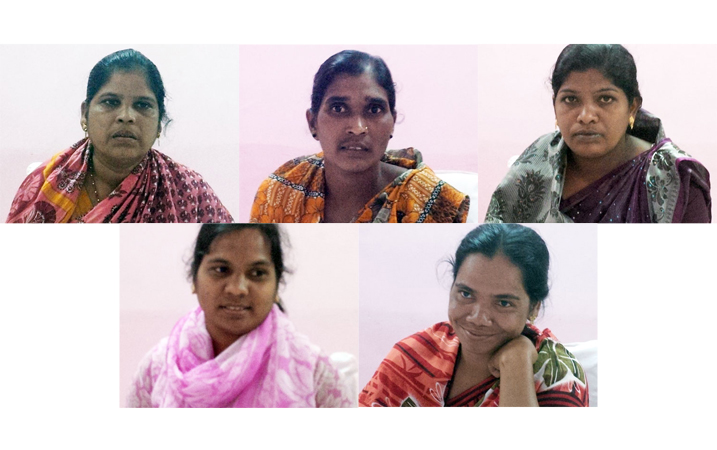 Five Christian widows who lost their husbands amid the mayhem that broke out in August, 2008, when the assassination of a local Hindu leader was blamed on the Christian minority told the stories of their husbands' murders to Crux.
Five Christian widows who lost their husbands amid the mayhem that broke out in August, 2008, when the assassination of a local Hindu leader was blamed on the Christian minority told the stories of their husbands' murders to Crux.
In the galaxy of contemporary anti-Christian persecution, the martyrs of Kandhamal in India hold a special place, and not just because statistically they died amid the worst outbreak of violence specifically directed at Christians so far in the 21st century.
The manner in which many of these Christians lost their lives, almost all of whom come from the Indian caste once considered “untouchable,” was almost unimaginably grotesque—violence more at home in the Bible or early Christian martyrology, seemingly, than the here-and-now.
On Monday, Crux sat down with five Christian widows who lost their husbands amid the mayhem that broke out in August, 2008, when the assassination of a local Hindu leader was blamed on the Christian minority.
By all accounts, the pogroms were instigated by radical Hindu activists seeking to eliminate the Christian presence from the area.
The interview with the widows took place in Bhubaneswar, the capital city of Odisha state (formerly known as Orissa), where the killing occurred, and was organized by the Global Council of Indian Christians, an advocacy and relief group for Christian victims of religious persecution.
These are their stories about their husbands’ murders.
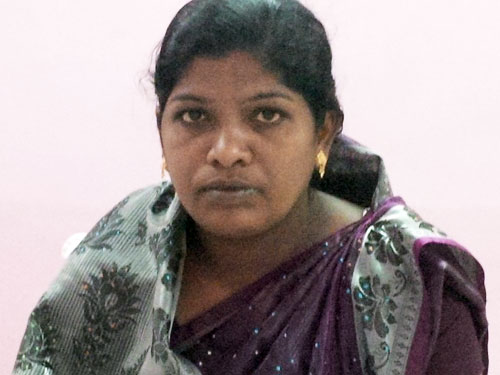 Kanaka Rekha Nayak
Kanaka Rekha Nayak
Parikhit Nayak
Parikhit Nayak was killed on Aug. 27, 2008, after spending two days hiding with his wife and their two children in a forest near their village of Tiangia Budedipade. He was a Baptist, and his tribal neighbors wanted to force him to deny his faith and embrace Hinduism.
Weeping as she spoke, his wife, Kanaka Rekha Nayak, 35, recounted the desperation she felt when she saw her husband dragged for almost a mile with a bicycle chain around his neck, as she tried to both be with him and to protect their two-year-old son, Bennie.
“The mob gave him a warning: ‘Convert or be killed,’” Kanaka said. “But he told them that he’d accepted Jesus, and that he would save him.”
The enraged group of Hindus continued hitting and beating him until they saw he wasn’t going to budge. Then, in a scene straight out of a horror film, Kanaka’s tormentors sliced off his genitals, cut open his belly to remove his intestines, and wore them around their necks as a badge of honor.
In the coup de grâce, Kanaka said, “They cut my husband into pieces in front of me, covered him in kerosene, and set him on fire.”
After finishing with Parikhit, she said, the mob turned on her, intending to rape her. She escaped by running to a nearby forest, and eventually found herself in the house of people she didn’t know some 10 miles from her husband’s remains.
The next morning, the owners of the house took her to a relief camp called Raika, one of several created during the several violent months that followed the Aug. 23 killing of Swami Lakshmanananda Saraswati.
It wasn’t until three days later that the police acknowledged the murder and accompanied Kanaka to the place where her husband’s remains had been abandoned. She was allowed to bury him in an already occupied tomb in the cemetery of a nearby Catholic convent, but everyone was so afraid that no priest presided over the interment.
Thanks to the testimony of their daughter, who’s now 12 but was five when her father was murdered, 25 men were identified as responsible for Rekha’s death. Eighteen were criminally charged, but only one is in jail; the others move freely in their village.
Although Kanaka had to leave town after their house was burned, she sometimes returns to the village and runs into the very men who committed the atrocities that claimed her husband’s life.
“Some run away when they see me, some greet me, hoping I’ll dismiss the case against them, and some threaten to kill me or my daughter, so she can’t be used as a witness in the Supreme Court,” she said.
In less than a month, she’ll return yet again, to visit her husband’s grave. She remembered his final words, spoken to his assailants: “Do whatever you want to me, but spare my family!”
Despite the hardship, she’s proud of her husband’s courage to not to deny his faith to save himself.
“My husband is no longer with me, but the Lord has given me the opportunity to share my testimony with others, so that hopefully this doesn’t happen again.”
* * *
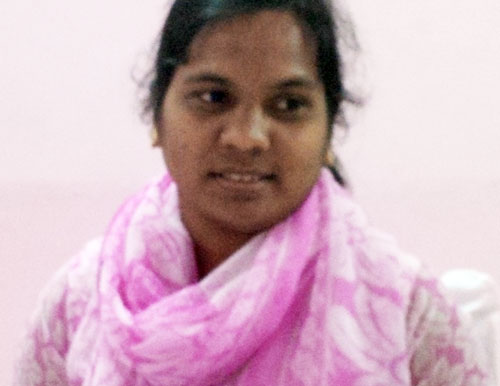 Asmita Digal
Asmita Digal
Rajesh Digal
Rajesh Digal, a pastor of the Free Methodist Church, was intercepted on the night of Aug. 26, 2008 as he was returning home in a truck. He and a younger man had hitched a ride, trying to get home as soon as possible after hearing of the violence taking place in their village of Bokinga.
When the mob searched Digal’s bag, they found his Bible, and as with Parikhit Nayak — and most of the Kandhamal martyrs — they offered to spare his life if he accepted Hinduism.
After he refused, they buried him in a muddy pit up to his neck for two full days, leaving only his head exposed. At one point Digal asked for water, and one of his captors urinated into his mouth.
On the third day, they took him out, but he still refused to repudiate Christianity.
“They kept asking ‘Are you willing to convert?’ and every time he said no,” his 29-year old widow, Asmita Digal, said. “In response, they cut off each of his limbs, one by one.”
Although Asmita managed to escape before the end came, the young man traveling with Digal joined her later that day in a camp and informed her that the Hindu assailants had beaten her husband to death and disposed of his body.
That young man, however, refused to provide testimony to the police out of fear.
Since Digal’s remains were never found – because of what witnesses told her, she believes they burned his body and threw the ashes to a nearby river –the police won’t file murder charges against any of his attackers, permitting only a “missing person” report.
As a result, Asmita hasn’t been able to request the $1,000 compensation the government has agreed to give to the families of people officially recognized as having been murdered during the violence. The money would help her pay rent for a small house where she moved with her two young children.
Asmita said are no Christians in her new village, so the only place of worship she has is a Catholic church in a nearby town.
“My husband gave his life for the Lord,” she said. “It’s caused me great problems for my earthly life, but in spite of everything, I won’t deny Jesus Christ, and my children will grow up knowing him.”
* * *
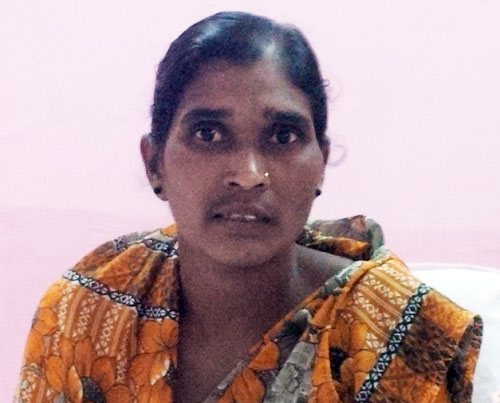 Runima Digal
Runima Digal
Iswar Digal
Iswar Digal was killed Sept. 20, 2008. Together with his wife, Runima, 40, and their four children, they were traveling from a relief camp in Gudyar to the town of Mole Para because Iswar’s father had fallen ill.
They arrived at the family home at night, hoping to avoid being seen. Their efforts, however, were fruitless: Someone had alerted the village of their arrival, and a mob caring machetes, swords, and axes came looking for them.
The family managed to hide in a nearby forest, but when morning came, a group of 15 fundamentalists found them. Iswar fell as he was trying to escape. The attackers took the opportunity to put a towel around his neck, and dragged him to a nearby river.
After beating him repeatedly, they killed Digal by cutting his body into three parts. They threw his remains into the river. The body parts were never recovered.
Runima and her four children managed to find refuge in a relief camp. That same afternoon, a boy who had witnessed the scene, since he, too, was part of the mob, told her what had happened.
The boy, however, refused to testify in court. As a result, only two men were ever imprisoned for Digal’s death, but after two years they were released on bail.
Runima has since left the town to move closer to her parents. When she goes back, she said, she can overhear threatening comments coming from her former attackers as she passes them in village streets: “We will take care of you,” she says they mutter.
“I haven’t denied the Lord, and my faith has made me stronger,” Runima told Crux.
She was born in a Christian family, and when Iswar proposed, she told him she’d marry him only if he got baptized. He did so, and his parents and siblings followed in his footsteps soon after.
* * *
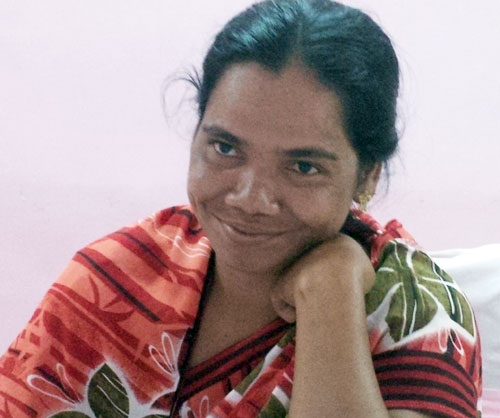 Monalisa Nayak
Monalisa Nayak
Gopona Nayak
The situation of Monalisa Nayak, 25, in many ways mirrors that of Runima Digal. Her husband, Gopona Nayak, was killed Aug. 24 in 2008 after he refused to embrace Hinduism. Although she was able to identify 12 of her husband’s murderers, no one else came forward to support her testimony, and so the attackers remain at large.
Unlike Digal, however, Monalisa has no family to go back to, since they banished her after she became a Christian. In fact, they even blamed her misfortune on her decision to convert.
“You had it coming for abandoning your family’s faith,” she said they told her at the time.
She explained that an angry mob grabbed Gopona, her husband, in the forest after they had fled the village. While trying to escape, he fell down a hill into a field submerged in 15 feet of water. The extremists threw stones at him, and when he was badly hurt, they dragged his unconscious body to a local Baptist church.
The attackers then tossed Gopona’s body into the church and doused the structure with kerosene, burning him to death.
Monolisa hid in the forest for at least three more days. Because of heavy rains, by the time she managed to get the police to go to the crime scene, there was no physical evidence left of the assault.
She and her two children now survive on the roughly $1.50 a day she earns as an occasional daily laborer.
* * *
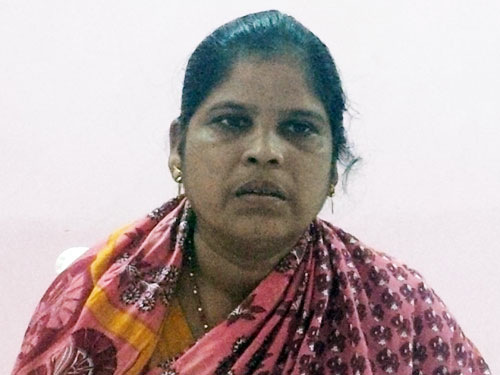 Puspanjali Panda
Puspanjali Panda
Divyasingh Digal
Puspanjali Panda, 44, wasn’t able to bury her martyred husband, either. Divyasingh Digal was killed Aug. 26 as he was coming out from a church program. As he was leaving the church, he heard a mob was looking for him, so he took refuge in a nearby house.
Some hours later, the mob caught up to him. They dragged him out to the street and beat him with sticks and slapped him as he continued to struggle to escape. Eventually one knocked him down by throwing a stone at his head.
Having subdued Digal, they then cut off his limbs and dragged him to the shore of a nearby river, abandoning his body after his death.
At midnight, a crowd of Hindu extremists went to the Panda household and threatened to kill Puspanjali, too, if she didn’t convert, but they weren’t able to get in and eventually gave up. They tried again around 5 a.m. to no avail.
Early the next morning, she roamed the town looking for her husband until someone told her to avoid the river because there was a body lying on the ground.
She was able to identify the remains, and went to the police to file the complaint. They took the body to do an autopsy and never returned it to her, which Puspanjali believes was a way of covering up the crime. As a result, she was never able to say goodbye.
“The extremists didn’t allow me to bury my husband,” she said in tears.
Paralyzed by fear, a product of seeing her husband’s killers walking around town with impunity, she moved to her parents’ house. Last year, however, after she refused to convert to Hinduism, her father told her that she and her 17-year-old daughter could no longer live in the family home.
Today, Puspanjali lives at a relief camp with 70 other families that still haven’t been able to return to their villages even seven years after the violence ended.
